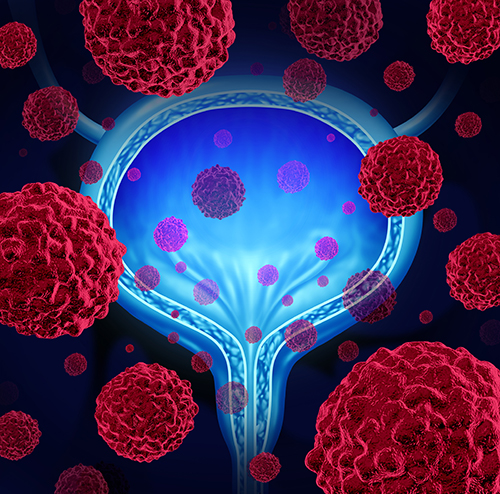현재 위치:홈 > 뉴스현황 > Press Events > Immune Cells the Mis...
저자: 업로드:2017-07-26 조회수:
Checkpoint immunotherapy drugs have seen a surge in their adoption as their effectiveness in treating various cancers continues to provide clinical success. Yet, one type of persistent tumor has remained relatively intractable to immunotherapeutic interventions, bladder cancer. However now, a team of researchers led by investigators at the Vancouver Prostate Centre and Vancouver Coastal Health Research Institute (VCHRI) has just released new findings that offer a possible explanation for why this new type of cancer treatment hasn't been working as expected.
Results from the new
study—published today in Nature
Communications in an article entitled “Evasion of
Immunosurveillance by Genomic Alterations of PPARγ / RXRα in Bladder Cancer”, finds that checkpoint
immunotherapy, which is designed to activate the immune system, is not
effective on some bladder cancers because there are no immune cells in those
tumors. The new findings explain what is occurring at the cellular level to
prevent the immune cells from getting into the tumor. Moreover, the research
team is optimistic that their data will open up new avenues of research that
will direct scientists toward developing a combination therapy that could be
more effective.
"It's been a mystery for decades as to how tumors escape the immune system," explained co-senior study investigator Mads Daugaard, Ph.D., assistant professor of urologic science at the University of British Columbia and a senior scientist at the Vancouver Prostate Centre and VCHRI. "We've identified a cellular signaling pathway that regulates whether the body's immune cells are allowed to infiltrate the tumor."

Currently, bladder cancer accounts for about 5% of all new cancers in the U.S. and is the fifth most common cancer in Canada. Furthermore, there is only one line of chemotherapy available, cisplatin-based therapy, for invasive tumors. Once cancers become resistant, only checkpoint immunotherapy is approved as a second-line treatment.
Atezolizumab, an anti-programmed death-ligand 1 (anti-PDL1) antibody drug, strengthens the body's immune response and recently became the first new bladder cancer drug to be approved in more than 20 years. While initial results were very promising, subsequent clinical trials have shown that only one in five patients showed an objective response to treatment, which has perplexed researchers, until now.
In the current study, the researchers found that some invasive bladder cancer tumors block the immune cells from accessing it by activating a cell signaling pathway called the peroxisome proliferator-activated receptor gamma (PPARγ) pat